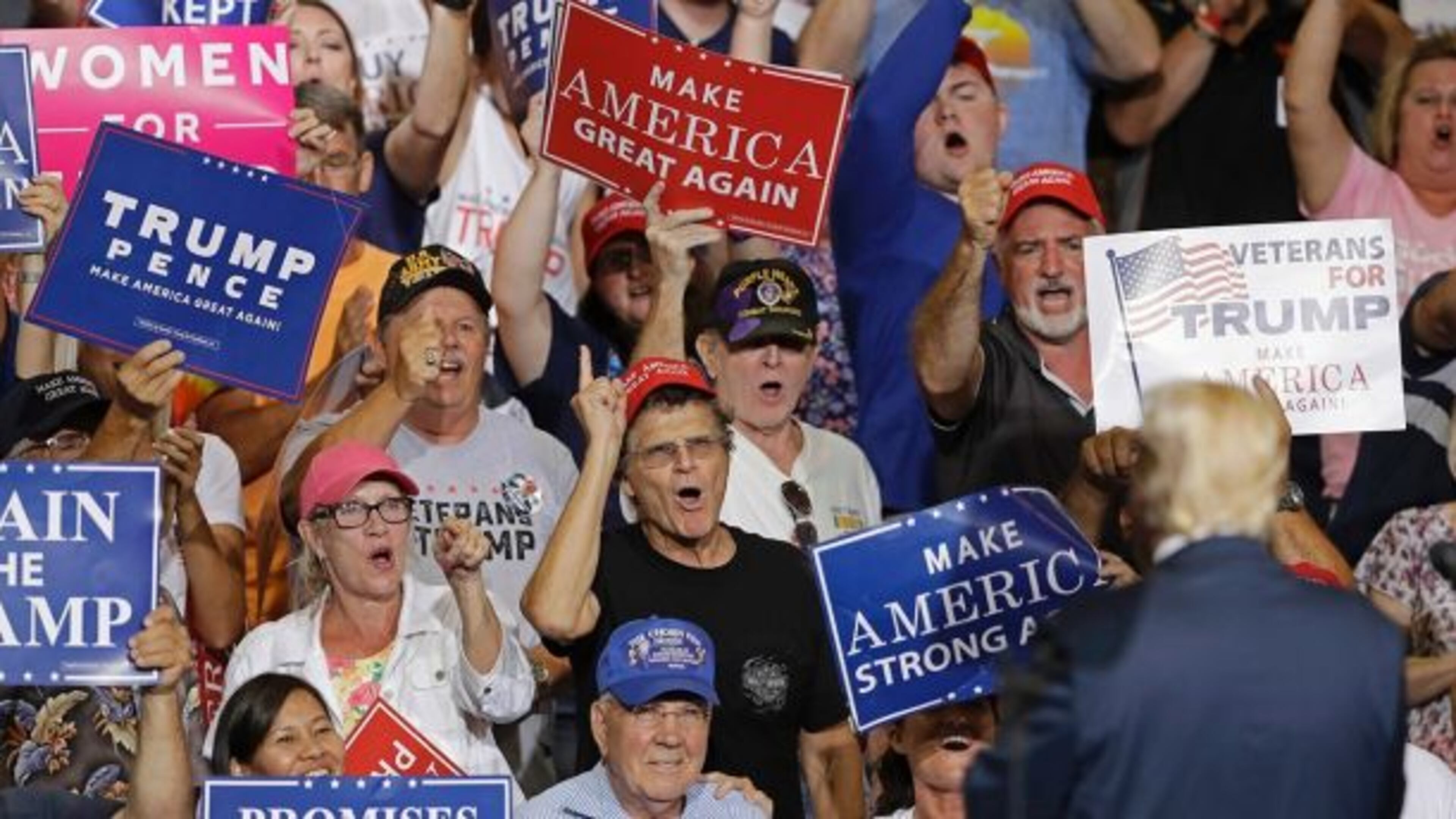Opinion: Trump flees Washington heat

Trouble is afoot.
In Washington, a federal grand jury has convened and subpoenas have begun to fly. Among the issues being explored by special counsel Robert Mueller: Michael Flynn, Russian intervention into the 2016 election, that infamous meeting in Trump Tower between Russian attorneys and top Trump campaign officials and ... Trump family finances.
Meanwhile, a besieged President Trump traveled to West Virginia Thursday night for the latest in his series of self-esteem seminars.
“The Russia story is a total fabrication,” Trump told an avid crowd of supporters. “It’s just an excuse for the greatest loss in the history of American politics, that’s all it is.”
"They can’t beat us at the voting booths, so they’re trying to cheat you out of the future and the future that you want. They’re trying to cheat you out of the leadership that you want with a fake story that is demeaning to all of us, and most importantly demeaning to our country and demeaning to our Constitution.”
If Trump's scorched-earth approach rings a bell, it should. Late in the 2016 campaign, when the polls seemed to spell defeat, candidate Trump began telling crowds that dark forces had rigged the election, that a victory that they had earned was about to be stolen from them. The claim had no basis in fact, but in TrumpWorld fact is a commodity without value anyway. To Trump, having an excuse for his defeat was far more important than any long-term damage that he might do to the legitimacy of American democracy.
The situation has changed since then, but Trump's basic amorality has not. As he signaled in West Virginia, he is more than ready to force a constitutional crisis to save his own butt.
However, it's also important to note just how isolated he has become on this issue. The entire U.S. intelligence community, including his own appointees, concurs that Russia interfered in the 2016 election on Trump's behalf; top Republicans, including Vice President Mike Pence, have also confirmed their acceptance of that reality. In fact, over Trump's strong objections, a Republican Congress just passed a harsh new set of sanctions against Russia, by votes of 419-3 in the House and 98-2 in the Senate.
It is only in TrumpWorld that Russian intervention remains a hoax; only in that slowly shrinking sphere is Mueller's investigation still dismissed as a plot by Democrats to seize control of government, rather than a necessary probe into just what happened.
To further undermine the investigation, Trump's remaining defenders -- Sean Hannity, Newt Gingrich and others of that ilk -- are also trying to make the case that by extending his investigation from possible collusion into Trump's finances, Mueller has exceeded his legal mandate and should be removed from office, if necessary by Trump himself.
There are at least two major problems with that argument. The first is that the mission given to Mueller by then-acting Attorney General Rod Rosenstein includes the investigation of "any matters that arose or may arise directly from the investigation." Trump's finances, especially any financial involvement with Russian interests, obviously fall within that broad description.
The second is more basic. Imagine a beat cop who responds to a call about a suspected burglary, but in the process discovers a methamphetamine operation. Under the theory advanced by Trump apologists, that officer should be forbidden to pursue the meth investigation because that wasn't his or her original aim, and should be fired if he or she attempts to do so.
I am not aware of any legal theory or law enforcement principle that supports such an argument. To the contrary, the idea that law-enforcement personnel are supposed to turn a blind eye when they come across evidence of wrong-doing is ludicrous. And if you're reduced to making that kind of argument, if that's the best that you can come up with, then that in itself is a sign of deep, deep trouble.
